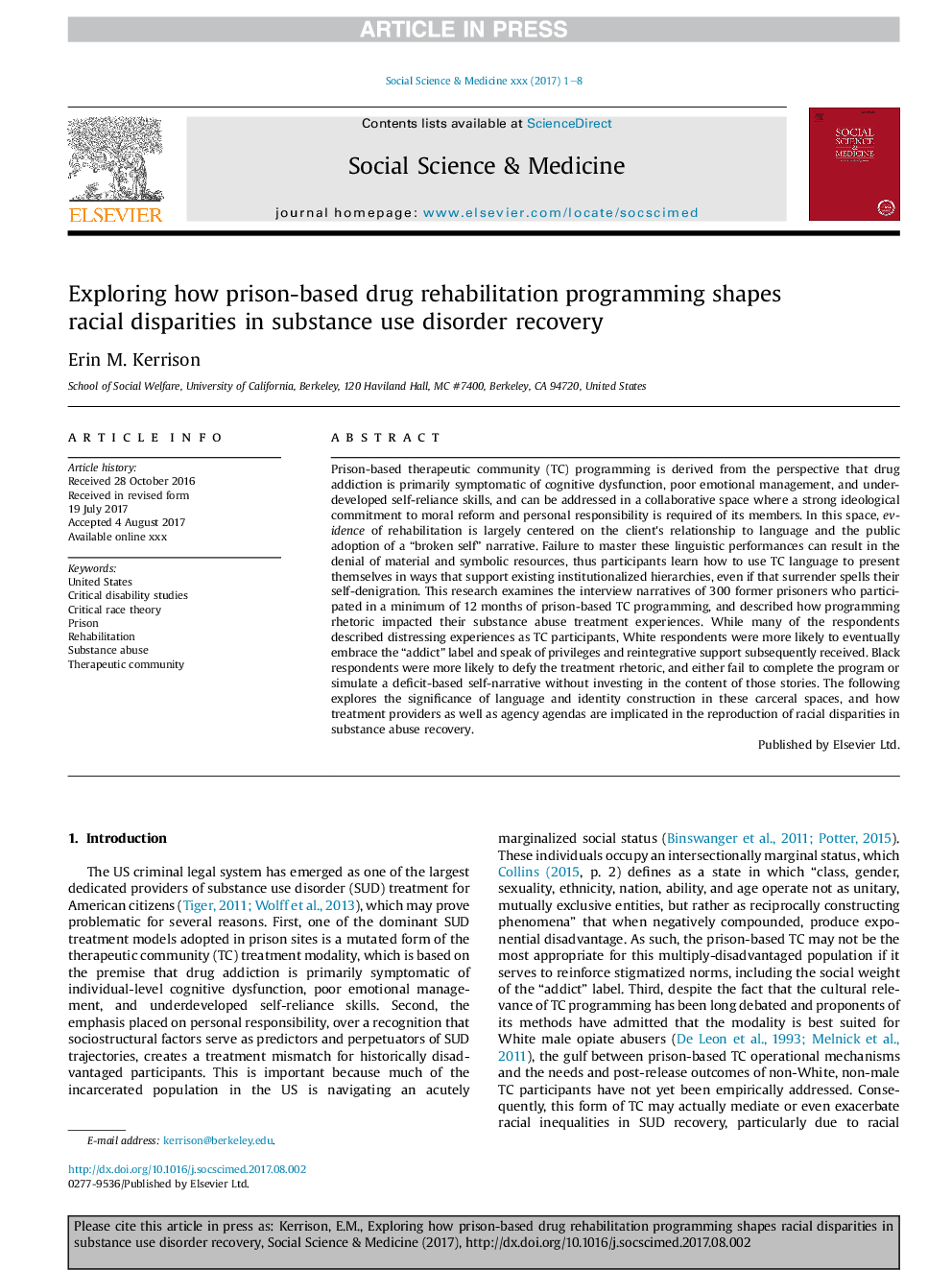ترجمه فارسی عنوان مقاله
بررسی چگونگی برنامه نویسی توانبخشی مواد مخدر مبتنی بر زندان ها، تفاوت های نژادی در بازیابی اختلالات مصرف مواد را نشان می دهد
عنوان انگلیسی
Exploring how prison-based drug rehabilitation programming shapes racial disparities in substance use disorder recovery
| کد مقاله | سال انتشار | تعداد صفحات مقاله انگلیسی |
|---|---|---|
| 119993 | 2018 | 8 صفحه PDF |
منبع

Publisher : Elsevier - Science Direct (الزویر - ساینس دایرکت)
Journal : Social Science & Medicine, Volume 199, February 2018, Pages 140-147
ترجمه کلمات کلیدی
ایالات متحده، مطالعات معلولیت بحرانی، نظریه نژاد انتقادی، زندان توانبخشی، سوء مصرف مواد، جامعه درمانی،
کلمات کلیدی انگلیسی
United States; Critical disability studies; Critical race theory; Prison; Rehabilitation; Substance abuse; Therapeutic community;

